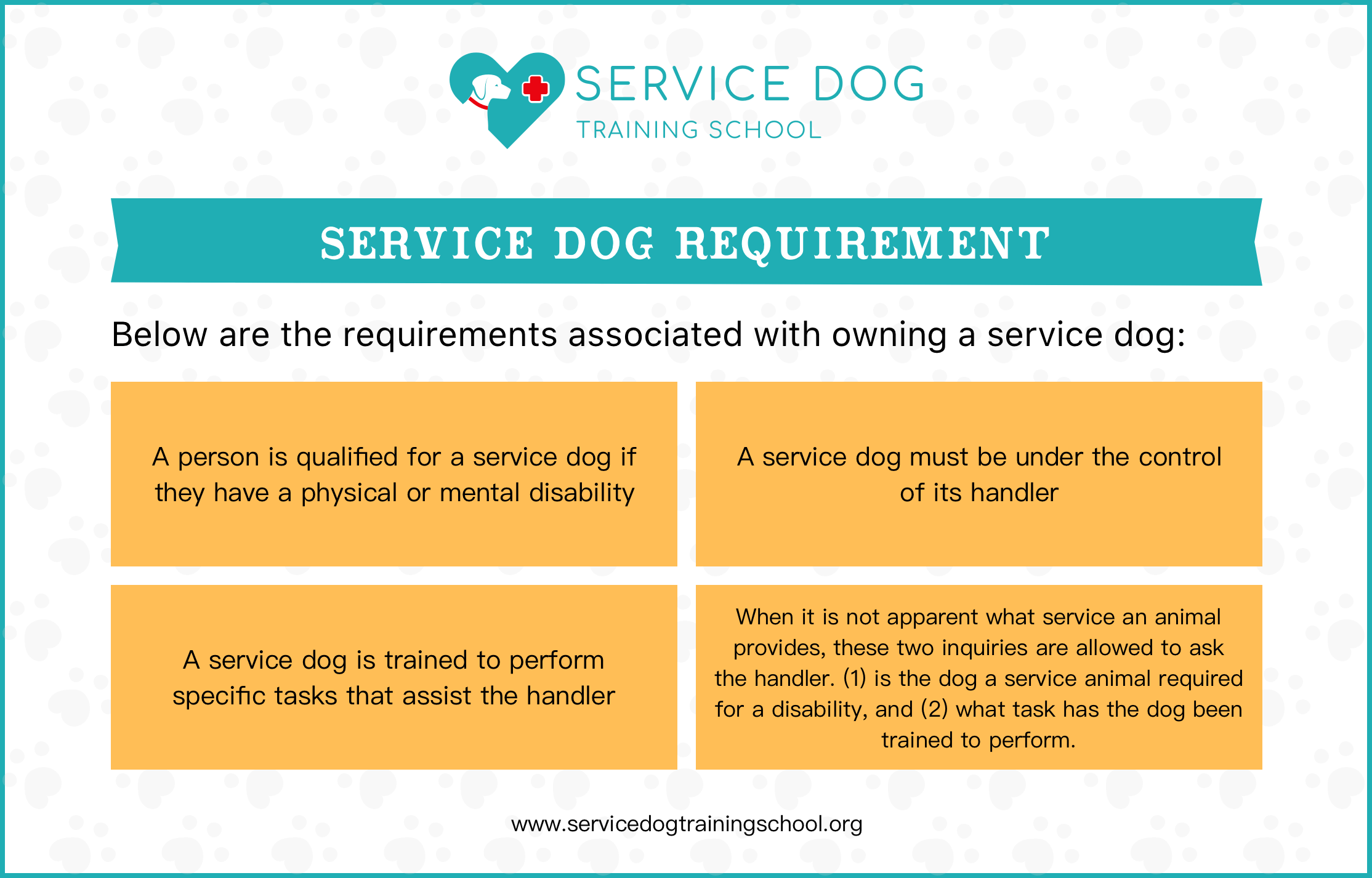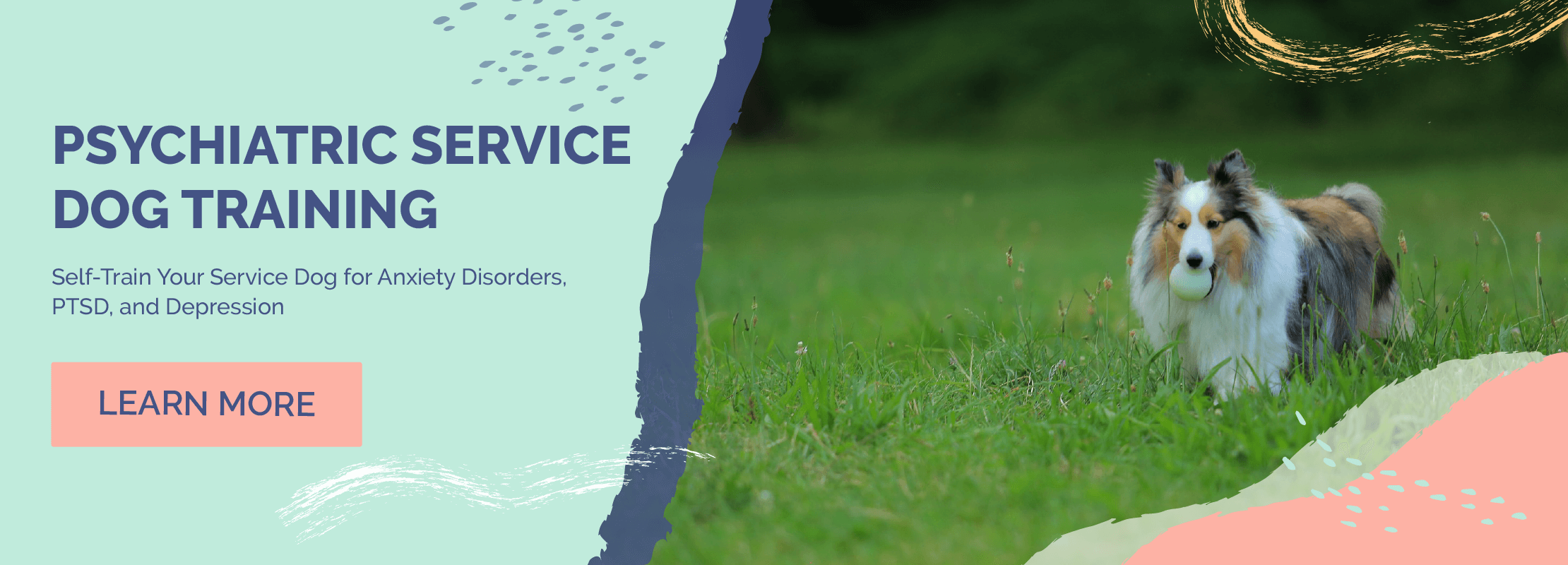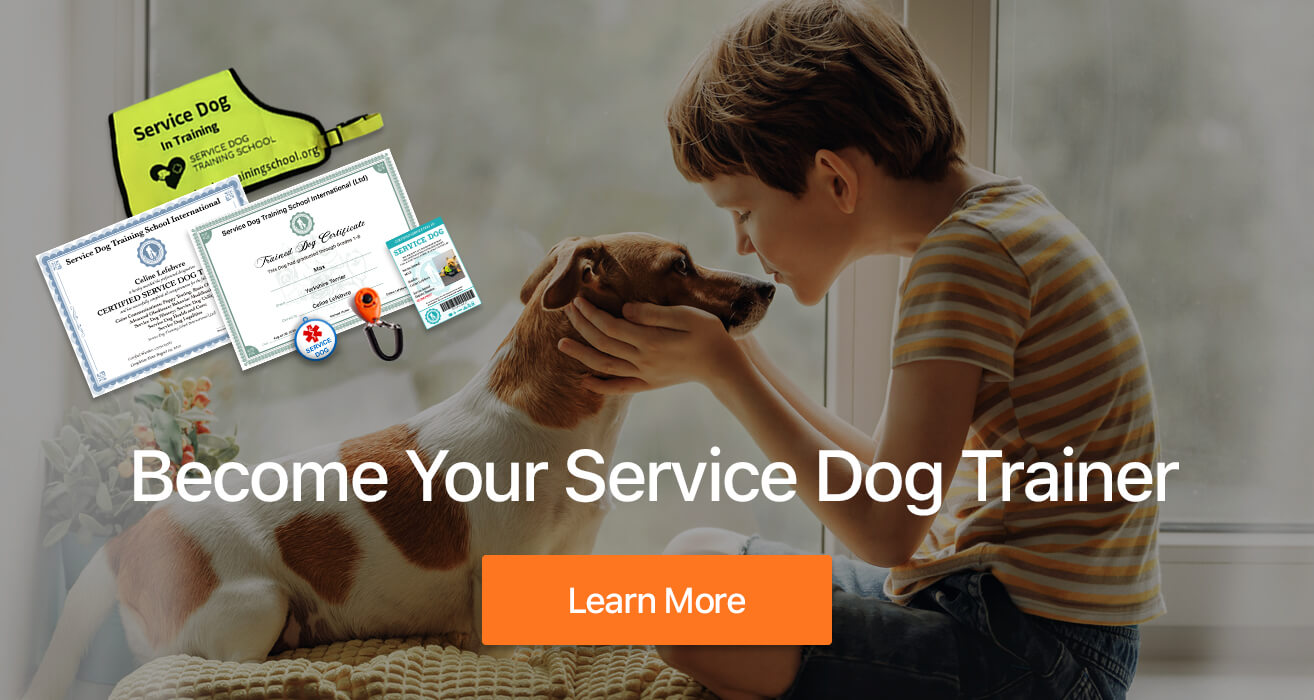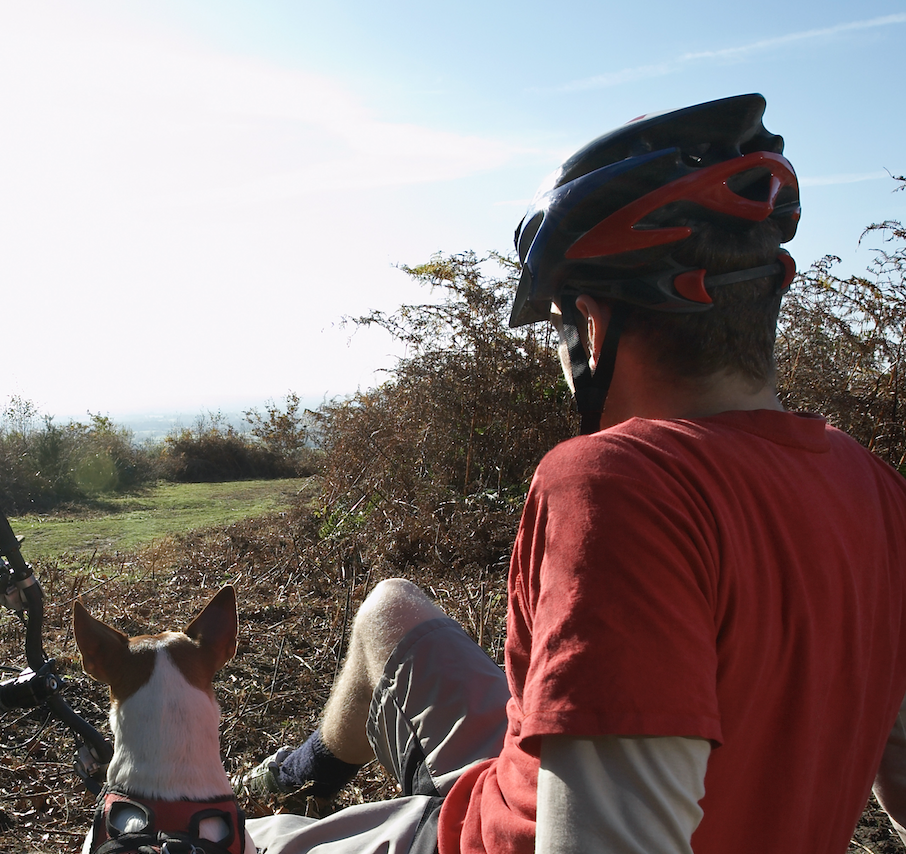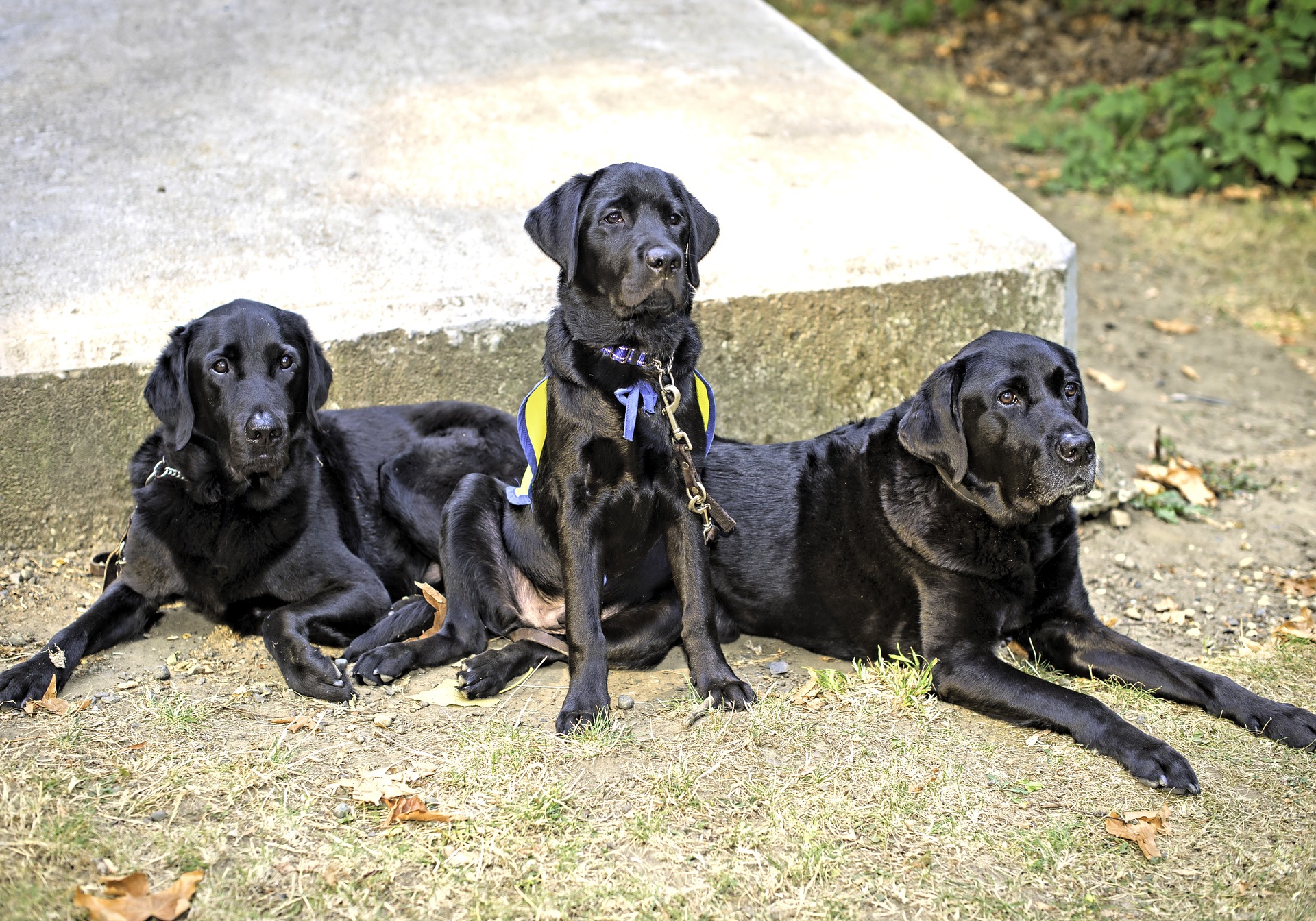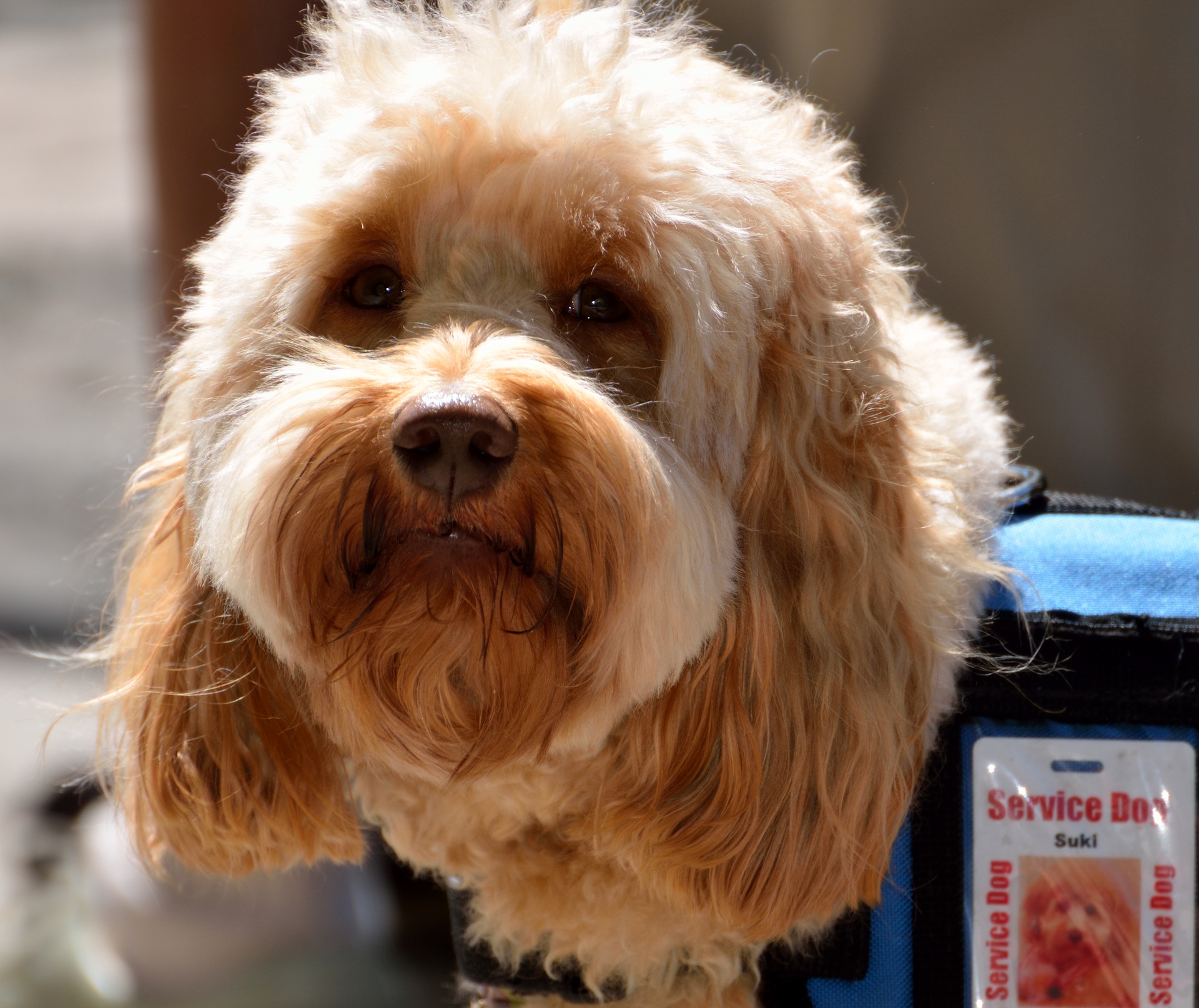
If you are looking for a good advice on the service dog laws in Canada, you are at the right place. The provincial and federal laws in Canada are contradictory and can be vague to the point where you should seek legal counsel on the matter. We have prepared a quick overview of the laws and regulations in the Canadian provinces that concern service dogs and their handlers. In addition, you need to be mindful of the "Accessible Transportation for Persons with Disabilities Regulations" when you need to travel by air as it defines service dogs as follow:
“service dog means a dog that has been individually trained by an organization or person specializing in service dog training to perform a task to assist a person with a disability with a need related to their disability. (chien d’assistance)”
This interpretation does not enable self-trained service dogs to travel by air unless they have a certificate issued by the local government as it is the case with Alberta and British Columbia. The Accessible Transportation for Persons with Disabilities Regulations includes a segment called “Duty to accommodate” which includes this paragraph:
“A carrier may require a person with a disability who requests to travel with a service dog to control the dog with a leash, tether, or harness during travel and to provide:
(a) at the time that the person with a disability makes the reservation with the carrier, a declaration attesting that the service dog has been individually trained by an organization or person specializing in service dog training to perform a task to assist the person with a disability with a need related to their disability; and
(b) before departure, an identification card or other document that is issued by an organization or person specializing in service dog training that identifies the person with a disability and attests that the service dog has been individually trained by the organization or person to perform a task to assist the person with a disability with a need related to their disability”.
Persons who rely on a bigger dog and need to travel by air should take note of the paragraph from the Accessible Transportation for Persons with Disabilities Regulations quoted below:
“Additional space for service dog
(4) If, because of the size of the service dog, the passenger seat of the person with a disability does not provide sufficient floor space for the service dog to lie down at the person’s feet in a manner that ensures the safety and well-being of the dog and the person, the carrier must provide to the person any passenger seat adjacent to their passenger seat that is needed to provide sufficient floor space for the service dog”.
I recommend that you check the Canada Transportation Act as well. The local laws and regulations for the provinces are listed below.
Alberta
The provincial government recognizes certificates from approved service dog organizations. These organizations are assessed based on the Alberta Training Standard, which is equivalent to the standards for Assistance Dogs International (ADI). Hence, all organizations that are part of the ADI network of schools are approved. Service dogs must carry a jacket, cape, harness, or other equipment to indicate that they are working animals assisting a person with a disability. Service dogs trained through an approved organization must fit within the criteria listed below:
1. Do not solicit attention, visit or annoy any member of the general public.
2. Do not disrupt the normal course of business.
3. Do not vocalize unnecessarily, i.e. barking, growling or whining.
4. Show no aggression towards people or other animals.
5. Do not solicit or steal food or other items from the general public.
6. Work calmly and quietly in a harness, leash.
7. Are able to perform tasks in public without showing distress or avoidance.
8. Are able to lie quietly beside the handler without blocking aisles, doorways, etc.
9. Stay within 24 inches of their handler at all times unless the nature of a trained task requires them to be working at a greater distance.
Basic Obedience skills:
1. Are able to demonstrate mastery of basic obedience skills sufficient to support a disabled person having public access with that dog.
2. Are able to focus on the person with a disability despite distractions, such as children running, loud noises, flashing lights, traffic, and the presence of food, balls, toys, or other attractants.
3. Have prompt recall directly to the handler.
4. Respond to commands 90% of the time on the first command in all public environments.
Owners of self-trained animals can take the "Service Dog Qualification Assessment" as mentioned here. Successfully passing the test will provide the owners of self-trained service dogs with public access rights. The assessment fee is 50 CAD for Albertans and 150 CAD for out-of-province applicants. Albertans receiving income support could have the fee for the test and their travel expenses covered in advance, you need to call contact the Service Dog Assessment Team:
Phone: 780-427-9136 (Edmonton)
Toll-free in Alberta: dial 310-0000, then the phone number
Email: [email protected]
Applicants with self-trained animals need to fit the requirements listed below:
1. They should be 18 years of age or older with a diagnosed disability and require a service dog to help with tasks related to their disability.
2. The service dog team can consist of a minor with a diagnosed disability, a service dog, and an adult service dog handler.
The service dog candidates must fit the requirements below:
1. They must be between 18 months and 9 years of age.
2. Must be spayed or neutered.
3. Be in good physical health.
4. Feature up-to-date vaccinations.
5. Be clean and well-groomed.
6. They have to be able to perform at least three tasks to the benefit of their handler/user.
Service dog teams that are in need of testing and qualification will need to fill out the forms listed below:
1) Qualification Assessment Application form;
2) Medical Recommendation form;
3) Veterinarian Requirements form.
These forms can be edited on your computer or printed out and then filled out with a pen. You will need to call your doctor and veterinarian for the forms. The forms can be later emailed to the address mentioned above ([email protected]) or sent via regular mail to:
Service Dog Assessment Team
Community and Social Services
12th Floor Telus House (South Tower)
10020 Jasper Avenue
Edmonton, Alberta T5J 0N3
The candidates will be contacted via phone or email to set up a time, date, and location for the test/assessment to take place. If you and your dog demonstrate appropriate skills, an official Identification Card will be mailed to you later. Service dog teams have to carry their ID with them at all times when in public. If you are not successful on your first attempt, you can re-apply 30 days later and will be provided with feedback on what you need to improve.
British Columbia
The service dogs in British Columbia are subject to the "Guide Dog and Service Dog Act, Chapter 17" (GDSDA) and the "Human Rights Code" (which prevails over the GDSDA). An excerpt from the "Human Rights Code" in British Columbia reads:
"Certification under the GDSDA is entirely voluntary. Valid guide and service dog teams exist outside of the GDSDA certification process. Persons with disabilities who rely on a guide or service dog that is certified with other authorities, or is not certified, have an equal right to access and use of public services and places and rental or strata housing, and are protected under the BC Human Rights Code."
As long as you are using a trained service dog, you can not be denied access to restaurants, cafes, buses, taxis, hotels, motels, rented properties, any public place, and all other businesses. Service dogs are not pets and you can not be charged with pet-related fees. If you are denied service or public access with your service dog you can submit a complaint to the Security Programs Division via phone, fax, email, and mail.
Security Programs Division
PO Box 9217 Stn Prov Govt
Victoria, B.C. V8W 9J1
Phone: Toll free - 1 855-587-0185 (press option 5)
Fax: 250-387-4454
Email: [email protected]
Couriers: 3350 Douglas Street, Victoria, B.C. V8Z 3L1
If you are the handler/user of a dog trained by a school accredited by Assistance Dogs International (ADI) or the International Guide Dog Federation (IGDF) you will need to submit the following documents to Security Programs:
1) A completed Application for a Guide or Service Dog Certificate (Accredited School) (SPD0800)
2) A copy of an identification card issued by an accredited training school
3) An electronic copy of a photo that shows the applicant’s face clearly
4) A copy of valid government-issued photo identification such as a passport, BCID, or driver’s license.
You should be mindful of the 2-Year renewal process and the associated documentation required:
1) A completed Application for a Guide or Service Dog Certificate (Accredited School) (SPD0800)
2) An electronic copy of a photo that shows the applicant’s face clearly.
Security Programs will process your application within 3 to 4 weeks of receiving your papers and you will be contacted via email and/or phone.
There are service dog teams that have not worked with ADI or the IGDF and they will need to take action with their local government to have their dogs recognized as valid working dogs. Self-trained teams and people who have worked with a trainer who is not linked to ADI or the IGDF will need to apply for an assessment with the Security Programs Division on this page:
You will need to fill out and provide the following documentation:
1) A completed Application for a Guide or Service Dog Certificate (Non-Accredited School) (SPD0801);
2) A Medical Form Confirming Requirement for Guide Dog or Service (SPD0803) completed by a Canadian or U.S. physician or nurse practitioner.;
3) Written confirmation from a Canadian or U.S. veterinarian or equivalent that your dog has been spayed or neutered;
4) An electronic copy of a photo that shows the applicant’s face clearly;
5) A copy of valid government-issued photo identification such as a passport, BCID, or driver’s license.
You should be mindful of the 2-Year renewal process and the associated documentation required:
1) A completed Application for a Guide or Service Dog Certificate (Non-Accredited School) (SPD0801);
2) An electronic copy of a photo that shows the applicant’s face clearly;
If your documents are complete, Security Programs will direct you to the Justice Institute of British Columbia for assessment.
Manitoba
The service animals and their handlers are covered in the Human Rights Code of Manitoba. A service animal is defined in section 1 of the Human Rights Code as:
“an animal that has been trained to provide assistance to a person with a disability that relates to that person's disability.”
The code prohibits discrimination against individuals based on various characteristics including physical or mental disability or related characteristics or circumstances, including reliance on a service animal, a wheelchair, or any other remedial appliance or device. A person may have a disability that is physical or obvious such as blindness and rely on an animal for assistance that is quite apparent. A person may also have a disability that is not as obvious, such as a mental or invisible disability such as post-traumatic stress disorder or epilepsy, and rely on an animal for assistance in ways that are not readily apparent. This protection from discrimination includes requiring service providers, employers, and landlords to reasonably accommodate an individual’s need to rely on a service animal.
Service animals are, in most cases, easy to identify by a special harness or vest and are under the care and control of their owner (harnessed, leashed, or tethered) when working. Some service animals may not feature identification when that can interfere with the work or task they perform. In some cases, if a person’s disability prevents them from maintaining physical control of their animal, they will maintain control of the animal through voice, signal, or other means. The law in Manitoba is not very clear about what animal can be deemed a service animal and that is usually determined by the Manitoba Human Rights Commission on a case-by-case basis. There is no standardized identification or certification of service animals in Manitoba. Therefore, any animal that is identified as having been trained, including self-trained, to provide assistance to someone with a disability, can be a service animal. There are two important questions that the commission will consider:
1) Does the animal provide assistance to a person with a disability, which relates to the person’s disability?
2) Has the animal been individually trained to provide assistance to a person with a disability that relates to the person’s disability?
Usually, the commission agrees that a service animal is in most cases a dog that performs tasks for the benefit of its handler. However, the commission is open to assessing other animals as well. A dog or other animal that is not trained to provide assistance that relates to a person’s disability is not considered a “service animal”.
New Brunswick
The provincial government enforces "Guideline on Accommodating People with Service Animals". The document describes the term "service animal" as such:
"A service animal is an animal that has been trained to perform specific tasks in order to provide assistance to a person with a disability for that disability. Dogs are the most common service animals, but other animals (e.g. cats, monkeys, birds, and miniature horses) are sometimes used as well. It is not necessary for an animal to be professionally trained or certified as a service animal for the Act to apply. An animal that is trained, including self-trained, to provide personalized assistance for someone with a disability may be a service animal for the purposes of the Act."
A person with a service animal has the same right to employment, public services and facilities, and housing as a person without a service animal and/or disability. A service animal must be under the care and control of their handler at all times (e.g. harnessed, leashed, or tethered) unless doing so interferes with the work or task that it performs. If a person’s disability prevents maintaining physical control of the animal, the person must still maintain control of the animal through voice, signal, or other means. Service animals are not pets and no one should interact with a service animal unless the animal’s handler gives their permission.
The use of an animal that is not a service animal but instead a companion, emotional support, or therapeutic animal may still be protected under the Guideline if the animal is part of a person’s treatment for a disability. The benefits of pet ownership that are enjoyed by everyone (including those without disabilities) are insufficient to show reliance. The guideline document also refers to the identification of the service animals:
"Service animals should be readily identified, such as by a special harness or vest. This makes it easier for the employer, service provider, or housing provider to know that the animal is a service animal and make the appropriate accommodations. However, a special harness or vest is not required for the animal to be considered a service animal. Some people may choose less conspicuous methods to indicate that they rely on an animal as a service animal (e.g. note from a physician, training certificate) while keeping the fact that the animal is a service animal from those who do not have a need to know. This is ultimately a choice that a person with a service animal needs to make, while also being mindful that clearly identifying the animal as a service animal may make the accommodation process a smoother one.
The Act requires employers, service providers, and housing providers to avoid policies that have a discriminatory effect on people who use a service animal for a physical or mental disability. Employers, service providers, and housing providers have a duty to accommodate a person with a service animal to the furthest point possible short of undue hardship. The duty to accommodate extends to a third-party handler of the service animal if the third-party handler is accompanying a person with a disability who relies on the service animal. Accommodation is an individualized process that takes into account the specific needs and circumstances of the person requiring accommodation. Accommodation is also a multi-party inquiry that includes the person with the service animal and the employer/service provider/housing provider (as the case may be). In some situations, it may also include health care professionals, unions, and others as required.”
If you wish to file a complaint about discrimination or harassment in New Brunswick, you must use the complaint form for the New Brunswick Human Rights Commission.
Newfoundland and Labrador
The full text of the Newfoundland and Labrador Service Animal Act can be found here. It protects persons with a physical and/or mental disability from being discriminated against and from being refused housing. Also, the act states that you can not be charged extra fees for having a service dog with you in a public place, a private business, and a rented/leased property. Leases and agreements which include a restriction or prohibition against dogs or animals, do not apply to people with disabilities who are using a Service Animal.
Under the Human Rights Act, a disability means a degree of physical disability, a condition of mental impairment or developmental disability, a learning disability, and a mental disorder. If you need a service dog, you will need to obtain a doctor's notice for that first. The users and handlers of service dogs do not need to have their animal certified and carry an ID card for their dog by law. Service animals in Newfoundland and Labrador can be only dogs and miniature horses. The service animal must be calm, not cause disturbances and relieve themselves only in designated areas. You can train your own dog to be a service animal if you chose to do so and you may want to acquire a certificate to make your life a bit easier when you negotiate with landlords and when you travel.
The Newfoundland and Labrador Human Rights Commission is an independent government agency responsible for promoting and protecting human rights in the province. If you feel that your rights as a service dog user/handler have not been respected, you can file a complaint here.
Nova Scotia
The Nova Scotia Service Dog Act describes the rights and responsibilities of service dog users. The full text can be found here. Service dog candidates and their handlers need to apply for certification with the Service Dog Program that is part of the Department of Justice. The teams who pass the certification process are granted ID cards where you can see the dog and their handler along with the certificate number and expiration date. There is no fee for the application and the ID card.
If you have been working with a school accredited by Assistance Dogs International (ADI), you must submit:
1) a completed application form for a service dog (Accredited Schools);
written confirmation from the accredited training school that the service dog has completed training;
2) a passport-size photograph of the applicant and the dog taken together, guidelines are below:
- photo must clearly show the user and the service dog;
- the user and the service dog must be facing the camera;
- the face of the user and the service dog must be clear and visible;
- the image must be a close-up portrait format;
- there can be no other dogs or people in the photo;
- the background should not be the same color as the service dog;
- the size of the photo should be 70mm x 50mm.
If you have worked with a trainer/school not accredited by ADI, you and your dog will need to pass a service dog team assessment administered by St. John Ambulance. If you will proceed with this option, you will need to schedule the test with the Service Dog Program that is part of the Department of Justice. This can be done by sending the following papers:
1) a completed application form for a service dog (Privately Trained);
2) a completed medical form confirming the need for a service dog, completed by a physician or nurse practitioner;
3) a veterinarian form confirming the dog has been spayed or neutered;
4) a passport-size photograph of the applicant and the dog taken together, guidelines are below:
- photo must clearly show the user and the service dog;
- the user and the service dog must be facing the camera;
- the face of the user and the service dog must be clear and visible;
- the image must be a close-up portrait format;
- there can be no other dogs or people in the photo;
- the background should not be the same color as the service dog;
- the size of the photo should be 70mm x 50mm.
You will be notified by email and/or phone about your appointment after your papers have been processed. There is a fee of 187.50 CAD for the service dog assessment. If you’re receiving income supports you may be eligible to have the fee waived. The test that will be performed includes forty exercises that aim to establish if your trained service dog is calm, stable, and reliable for use. The test will take into account if the handler has control of the dog; if the dog behaves properly in a public setting; and if the dog shows confidence and discipline. The exercises are listed in the "Nova Scotia Service Dog Assessment Test" documentation here.
Certified service dog pairs have public access rights like every other Canadian citizen and they can not be denied access unless there is a valid and practical reason. Certified service dogs that have retired and remain with their handlers can receive retirement certification. This gives them tenancy rights so they can continue living with their handlers. You should contact the Service Dog Program that is part of the Department of Justice for assistance:
Department of Justice, Service Dog Program
1681 Granville Street, Joseph Howe Building
Halifax, NS B3J 2L6
Toll free: 1-888-760-5577 (Press 6)
Phone: 902-424-8805
Fax: 902-424-0700
Email: [email protected]
Service dog teams that plan to travel to Nova Scotia should consider applying for an ID card and certification with the local government. Also, if you have registration and certification from another province or equivalent legislation, it is recommended to call the office of the Service Dog Program for help.
The province does not have laws that address service dog teams in particular. The provincial government relies solely on its Human Rights Act in regards to individuals with a disability that may require special equipment and/or service dogs. The Nunavut Human Rights Act was passed into law by the Nunavut Legislative Assembly on November 5th, 2003. The province established a Tribunal that is a quasi-judicial body that is responsible for adjudicating human rights issues that occur in Nunavut. If you feel that you are discriminated against in some way, you can file a Notification with the Tribunal. Completed Notifications can be faxed or e-mailed to the Tribunal Office:
Fax: 1.888.220.1011
Email: [email protected]
The original copy must be sent by registered mail to the following address:
Nunavut Human Rights Tribunal Office
PO Box 15
Coral Harbour, NU X0C 0C0
All information contained in your Notification is strictly confidential. There is no cost to file a Notification. Any notifications received will be processed by the Tribunal within 60 days. The complaint (Notification) may not move to a hearing and you may receive assistance by the Tribunal to settle your case with the offending party. If you reach a hearing with the Tribunal, you and the other party will have to provide evidence and statements under oath. The last step is for the Tribunal to decide if you have been discriminated against and how this will be resolved. You can find more here.
Ontario
Service dog handlers and their paw partners have the same public access rights as any other citizen with very few exceptions like food processing facilities. Under the Ontario Human Rights Code, employers have a legal duty to accommodate the specific needs of employees with disabilities. Examples of accommodation include — modified duties; changes to workstations; flexible work hours or break times; assistive devices. If your guide dog/service animal does not wear a vest or harness, you can show documentation from one of these regulated health professionals — audiologist or speech-language pathologist; chiropractor; nurse; occupational therapist; optometrist; physician or surgeon; physiotherapist; psychologist; psychotherapist or mental health therapist.
Some municipalities may have by-laws restricting certain breeds of animals or dogs from the municipality, please keep this in mind and check in advance. Under the Ontario Human Rights Code and the Accessibility for Ontarians with Disabilities Act (AODA), service animals do not need to have certificates or identification cards. However, you may be asked to provide acceptable documentation. This includes:
1) documentation from a regulated health professional;
2) an identification card from the Ontario Ministry of the Attorney General for people who are blind and use a guide dog;
Persons with a disability who are in need of a service dog in Ontario can work with schools accredited by Assistance Dogs International (ADI), the International Guide Dog Federation (IGDF), a local private trainer, or train their animal themselves. You can rely on a dog training school to prepare a dog for you and include you in the training process. The provincial government has a "Policy on ableism and discrimination based on disability" that specifically states self-trained service dogs are allowed in Ontario and you can not be discriminated against. You can see that in article 191 in section 8 — "Duty to Accommodate".
If you feel your rights as a service dog user/handler have not been respected, you can contact the Human Rights Tribunal of Ontario. They handle discrimination claims filed under the Ontario Human Rights Code. If you decide to file a complaint with the Human Rights Tribunal, you may wish to:
1) first consult with the Human Rights Legal Support Centre to get information about filing your claim and to access legal support;
2) contact the ARCH Disability Law Centre, a specialty legal aid clinic that provides legal services to people with disabilities;
3) read the outcomes of past human rights cases.
If you prefer to report a suspected AODA violation in writing, you can send your message to — [email protected].
Prince Edward Island
At the time of writing, the province does not have any law that specifically addresses service dogs, the certification of working animals, and the use of service animals. This has been known to cause problems for citizens who seek to rent an apartment, seek employment, and who want to visit public places. There have been discussions on the Internet about this issue and some have suggested that it will be good for the provincial government to adopt regulations similar to those in Alberta and British Columbia where a service dog team can apply for an assessment and receive certification. If you are using a service dog who was trained and certified by organizations like Assistance Dogs International, the IGDF, the MIRA Foundation, the Lions Foundation, or the PACCK Foundation, you should be able to show an ID card and certification that could help you negotiate with a landlord and visit public places without problems.
The government of Prince Edward Island has a Human Rights Commission that is tasked with promoting equality, equal opportunity, and inclusive employment opportunities. The Human Rights Act defines "disability" as:
"“disability” means a previous or existing disability, infirmity, malformation or disfigurement, whether of a physical, mental or intellectual nature, that is caused by injury, birth defect, or illness, and includes but is not limited to epilepsy, any degree of paralysis, amputation, lack of physical coordination, blindness or visual impediment, deafness or hearing impediment, muteness or speech impediment, or physical reliance on an assist animal, wheelchair or other remedial device;"
This is the only paragraph of the legislature that refers to assistance animals/service dogs on Prince Edward Island. The Act prohibits discrimination which is described as follows:
"“discrimination” means discrimination in relation to age, color, creed, disability, ethnic or national origin, family status, gender expression, gender identity, marital status, political belief, race, religion, sex, sexual orientation, or source of income of any individual or class of individuals;"
As mentioned earlier, service dogs are not regulated in the province yet and self-trained service dogs are not likely to be obstructed from visiting public venues. Going into a store, a movie theater or a restaurant is likely to be much easier with a certified dog than with a self-trained service dog. If you have a self-trained or privately-trained service dog and you want to have peace of mind — we recommend carrying a letter from your doctor that confirms your reliance on a service animal. It is recommended to attain a certificate from a dog training organization.
Quebec
The courts have recognized that service dogs and guide dogs as a means of palliating a disability. The first court decision in Québec which upheld the prohibition of discriminating against persons who use guide dogs dates back to 1982. The province has a Charter of Human Rights and Freedoms that states all individuals are equal in worth and dignity regardless of their age, sex, national origin, race, color, language, religion, sexual orientation, gender identity or expression, civil status, social condition, political convictions, disability or means to palliate a disability. The Charter is a fundamental law that takes precedence over all laws in Québec. People who have a trained service dog can access any public venue, private businesses (restaurants, shops, hotels), taxis, trains, buses, places of work and employment, and recreational facilities like camping zones and movie theaters. You are permitted to these goods and services, without having to pay additional costs, and without discrimination. The official policy on service dogs is easily accessible on the page of the Human Rights and Youth Rights Commission which says:
"In Québec, there is no official certification issued by a government agency attesting to the training of service or guide dogs or any other animal used to palliate a disability.
The Commission does not keep a record of the organizations that provide training for guide or service dogs in Québec, nor provide training certificates for any kind of service animal."
Landlords are entitled to set their rules and policies for animals hosted on their properties. If a tenant requires a service animal due to a disability, this requirement is based on the Charter of Rights and Freedoms. The person requiring a service dog is protected by the charter which overrides any pet and animal policies by the landlords. Service Dogs are not pets and they are considered medical assistance devices that happen to be alive. If you have an emotional support animal or a therapy dog you can have them with you in a rented property. However, you will need to prove that the absence of the therapy dog/support animal will be detrimental to your health. A written notice from a doctor or psychiatrist will be required.
The Human Rights and Youth Rights Commission in Quebec is responsible for handling inquiries and complaints related to the reasonable accommodation of service dogs, therapy dogs, and emotional support animals. Complaints and inquiries can be submitted via phone and mail:
Phone: 514-873-5146 or 1-800-361-6477
Address:
Human Rights Commision
60, rue Saint-Jacques, 2e étage
Montréal (Québec) H2Y 1P5
Saskatchewan
The Saskatchewan Human Rights Code governs the rights and responsibilities of service dog teams in the province. The code defines “disability” this way:
1)any degree of physical disability, infirmity, malformation, or disfigurement and, without limiting the generality of the foregoing, includes: (A) epilepsy, (B) any degree of paralysis, (C) amputation, (D) lack of physical coordination, (E) blindness or a visual impairment, (F) deafness or hearing impediment, (G) muteness or speech impediment, or (H) physical reliance on a service animal, wheelchair or other remedial appliance or device, or
2) any of: (A) an intellectual disability or impairment, (B) a learning disability or dysfunction in one or more of the processes involved in the comprehension or use of symbols or spoken language, or (C) a mental disorder.
The provincial Policy on Service Animals can be found here. It is important to consider the first two paragraphs:
(i) Service animals assist persons with disabilities
People who use service animals require the animal to assist with symptoms or limitations arising from their disabilities. Although service animals have traditionally helped people with physical disabilities such as blindness, deafness, or limited mobility, there is a wide range of other disabilities for which service animals provide assistance, including psychiatric disabilities.
(ii) Examples of service animals
Service animals may be trained to provide services such as guidance for a person who is blind or to retrieve small items that are not accessible by a handler with physical limitations. Persons with psychiatric, intellectual, or mental disabilities also use service animals. Pursuant to this policy, the requirement for the accommodation of a service animal only occurs when a person with a disability requires an animal with specialized training to assist that person with a recognized disability.
Neither the policy nor the Saskatchewan Human Rights Code state if the service dog needs to be trained by a school accredited by Assistance Dogs International (ADI), the International Guide Dog Federation (IGDF), a certified private trainer, or if they can be trained by the owner. We recommend obtaining a certificate either way so that you have an easier time accessing public spaces and negotiating with landlords.
The policy dictates that landlords and condominium associations have a duty to accommodate service animals. A “no pets” policy in rental housing or a condominium does not apply to service animals. When accessing public places or services, handlers should be prepared to explain that the animal is a service animal and provide a basic description of the service the animal has been trained to perform. Handlers must also ensure that service animals are properly controlled to avoid unnecessary disruptions, risks to safety, or damage to property. Handlers may be asked to remove service animals that are not properly controlled. Handlers can be held responsible for injuries to people or property caused by a service animal.
The duty to accommodate does not mean that every accommodation request must be granted. In rare cases accommodating a service may not be possible when the animal could represent an undue hardship. An example of undue hardship would include a situation where the attendance of a service animal presents an unreasonable risk to health or safety. Minor irritation, limited financial costs, or unsupported fears of property damage, do not represent an undue hardship. If you feel that your rights have not been respected, you can file a complaint with the Saskatchewan Human Rights Commission. Their address is listed below:
Saskatchewan Human Rights Commission
P.O. Box 6011, Saskatoon SK S7K 4E4
E-mail: [email protected]
Phone: (306) 933-5952
Toll-free: 1-800-667-9249
Fax: (306) 933-7863
Help page: https://saskatchewanhumanrights.ca/filing-a-complaint/
Yukon
The provincial government has a Human Rights Act and two regulation bodies — The Human Rights Commission and The Yukon Human Rights Panel of Adjudicators. The first one is tasked with researching human rights and promoting policies and good practices. The Yukon Human Rights Panel of Adjudicators is a tribunal that is independent of the Yukon Human Rights Commission and of the Government of Yukon. The Panel of Adjudicators receives complaints that are referred to it by the Human Rights Commission. A board of adjudication is established by the Chief Adjudicator to hear individual complaints. If the panel determines that there is a case of discrimination at hand, it can order the respondent to stop the discrimination, pay damages for losses caused by the discrimination, and pay compensation for “injury to dignity, feelings or self-respect”. It may also make orders designed to remedy the cause of the discrimination and orders for payment of costs or exemplary damages. Complaints can be submitted here.
Service dogs are not specifically addressed in the Human Rights Act and they are not directly referenced in the Yukon Dog Act. The Yukon Dog Act is a compilation of regulations for dog owners and their animals. If you need to use a service dog in Yukon and you feel discriminated against, you will need to seek assistance from the Human Rights Commission and The Yukon Human Rights Panel of Adjudicators.
Northwest Territories
The local government does not have any meaningful service dog regulations that we can quote here. A single reference to guide dogs (a type of service dog) is found on page 11 of the Northwest Territories Human Rights Act. The NWT Human Rights Commission has no online resources dedicated to explaining service dogs as far as we could discern. Sadly, the Northwest Territories Legislative Assembly does not have any bills directly referencing service dogs either. Using CanLII (the Canadian Legal Information Institute) shows that resolving housing/tenancy disputes that involve service dogs can be rather problematic, given the lack of clear service dog legislation. Please refer to MPM v HO, 2020 CanLII 114851 (NWT RO).
In conclusion, (within the context of territorial legislation) a service animal is defined in relationship to their use by persons with a disability, not by their training or certification. There is no legal framework that enables landlords, local businesses, and service providers to ask service dog users for proof of training and certification. Any service dog user who is harassed and discriminated against will have to go through a court hearing if they wish to protect their rights. We encourage the citizens in NWT to reach out to their local Human Rights Commission for assistance as well.



